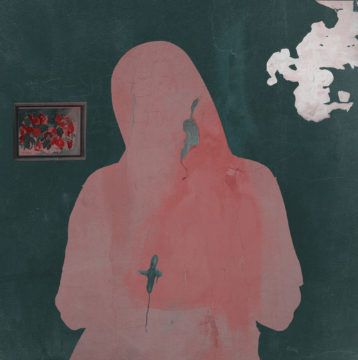From Lensculture:
 In many of our contemporary cultures, the realities of death feel unapproachable. Traditional grieving methods are routinely relegated to the margins, replaced by the medical promise of comforting objectivity. But for those of us confronted by the ebb and flow of complex emotions in the wake of death, the assurance of objectivity falls short. For Ioanna Sakellaraki, this evolving emotional storm, experienced head-on in the wake of her father’s death, is what prompted her to pursue a project on bereavement, finding ways to document the organic chaos that she describes as “the passageway into a liminal space of absence and presence.”
In many of our contemporary cultures, the realities of death feel unapproachable. Traditional grieving methods are routinely relegated to the margins, replaced by the medical promise of comforting objectivity. But for those of us confronted by the ebb and flow of complex emotions in the wake of death, the assurance of objectivity falls short. For Ioanna Sakellaraki, this evolving emotional storm, experienced head-on in the wake of her father’s death, is what prompted her to pursue a project on bereavement, finding ways to document the organic chaos that she describes as “the passageway into a liminal space of absence and presence.”
When Sakellaraki moved away from her home in Greece over a decade ago, she never anticipated the circumstances that ultimately led her back to that formative place. “When I returned to Greece after my father’s death, I slowly began unravelling a personal narrative of loss, interweaving the fabrications of grief in my family and culture, looking into how my work might untangle the endless remaking that surviving loss entails.”
When a community experiences death, it’s difficult to prepare for the multiple layers of grief that emerge, both private and collective processing that each require attuned navigation. Across time, in a number of communities around the world, processing grief was left to experts, often referred to as moirologists—professional mourners—who performed ancestral fate songs at a service. Growing up, Sakellaraki was aware of these traditions, but felt detached and afraid of them in her contemporary context.
More here.
